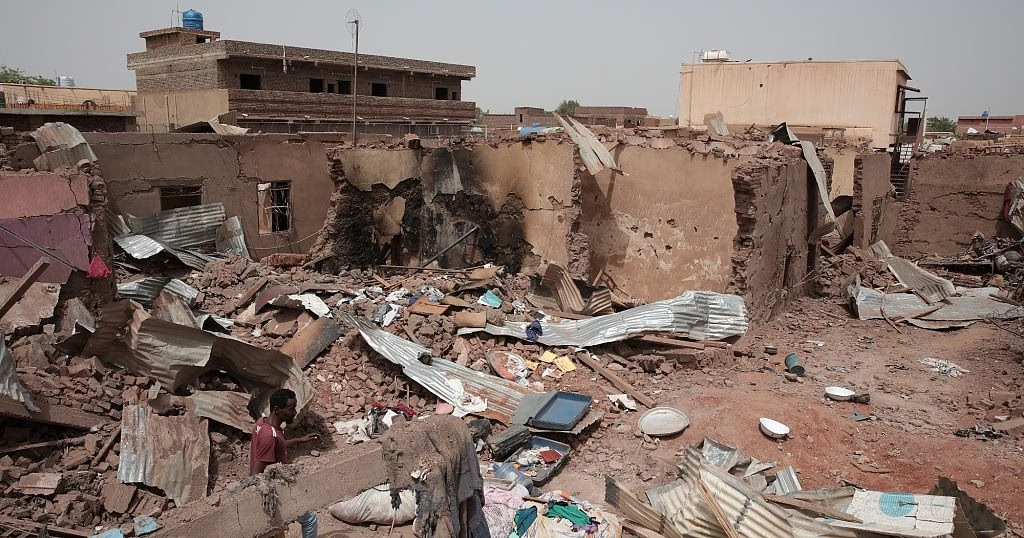
An estimated 12.1 million women and girls, along with an increasing number of men and boys, are at risk of sexual violence, marking an 80 percent increase from the previous year, according to Catherine Russell, Executive Director of UNICEF, speaking to the UN Security Council about Sudan. She stated that with the country’s economy and social services nearly in collapse and no end to the conflict in sight, over 30 million people, or nearly two-thirds of Sudan’s population, will require humanitarian assistance this year. Children are among the most affected, with 16 million of them paying a terrible price.
The humanitarian crisis in Sudan is deteriorating, with famine spreading across several regions. Russell mentioned that famine is present in at least five locations, affecting an estimated 1.3 million children under five and putting over 3 million under-five children at risk of deadly diseases due to poor healthcare infrastructure. The lack of basic facilities is further exacerbated, with 16.5 million school-aged children unable to attend school, putting nearly an entire generation at risk. Russell described the situation as a “poly-crisis” affecting multiple sectors, including health, nutrition, water, education, and protection.
The situation has become increasingly dangerous for children, as reported grave violations against them continue to rise. Russell noted over 900 incidents of such violations between June and December 2024, with 80 percent involving the killing and maiming of children, primarily in Darfur, Khartoum, and Al Jazirah States. Sexual violence in Sudan is also widespread, used as a tool to humiliate, dominate, disperse, and terrify populations, as highlighted by Médecins Sans Frontières (MSF).
MSF Secretary General Christopher Lockyear described the dire situation after treating wounded civilians fleeing Al-Jeneina, highlighting the targeting of the Masalit community. He called for a shift in the international response, emphasizing that the upcoming rainy season will further complicate the crisis. Lord Ray Collins of the UK urged for renewed efforts to end the conflict and improve humanitarian response, with a planned meeting in April to address these issues. The US confirmed continued support for life-saving humanitarian aid, aligning with President Trump’s executive order. Sudan’s Permanent Representative to the UN, Al-Harith Idriss al-Harith Mohamed, condemned the violence and raised concerns about the use of aid by militias, suggesting external actors’ involvement in escalating the conflict. The UAE’s Permanent Representative refuted these accusations, affirming that his country does not support any party in the conflict.
Addressing reporters after the Security Council meeting, Lockyear emphasized the need to stop the war in Sudan without disregarding civilians’ rights.
The humanitarian crisis in Sudan is deteriorating, with famine spreading across several regions. Russell mentioned that famine is present in at least five locations, affecting an estimated 1.3 million children under five and putting over 3 million under-five children at risk of deadly diseases due to poor healthcare infrastructure. The lack of basic facilities is further exacerbated, with 16.5 million school-aged children unable to attend school, putting nearly an entire generation at risk. Russell described the situation as a “poly-crisis” affecting multiple sectors, including health, nutrition, water, education, and protection.
The situation has become increasingly dangerous for children, as reported grave violations against them continue to rise. Russell noted over 900 incidents of such violations between June and December 2024, with 80 percent involving the killing and maiming of children, primarily in Darfur, Khartoum, and Al Jazirah States. Sexual violence in Sudan is also widespread, used as a tool to humiliate, dominate, disperse, and terrify populations, as highlighted by Médecins Sans Frontières (MSF).
MSF Secretary General Christopher Lockyear described the dire situation after treating wounded civilians fleeing Al-Jeneina, highlighting the targeting of the Masalit community. He called for a shift in the international response, emphasizing that the upcoming rainy season will further complicate the crisis. Lord Ray Collins of the UK urged for renewed efforts to end the conflict and improve humanitarian response, with a planned meeting in April to address these issues. The US confirmed continued support for life-saving humanitarian aid, aligning with President Trump’s executive order. Sudan’s Permanent Representative to the UN, Al-Harith Idriss al-Harith Mohamed, condemned the violence and raised concerns about the use of aid by militias, suggesting external actors’ involvement in escalating the conflict. The UAE’s Permanent Representative refuted these accusations, affirming that his country does not support any party in the conflict.
Addressing reporters after the Security Council meeting, Lockyear emphasized the need to stop the war in Sudan without disregarding civilians’ rights.
Source: http://www.africanews.com/2025/03/14/sudans-crisis-deepens-as-violence-and-famine-threaten-millions/







